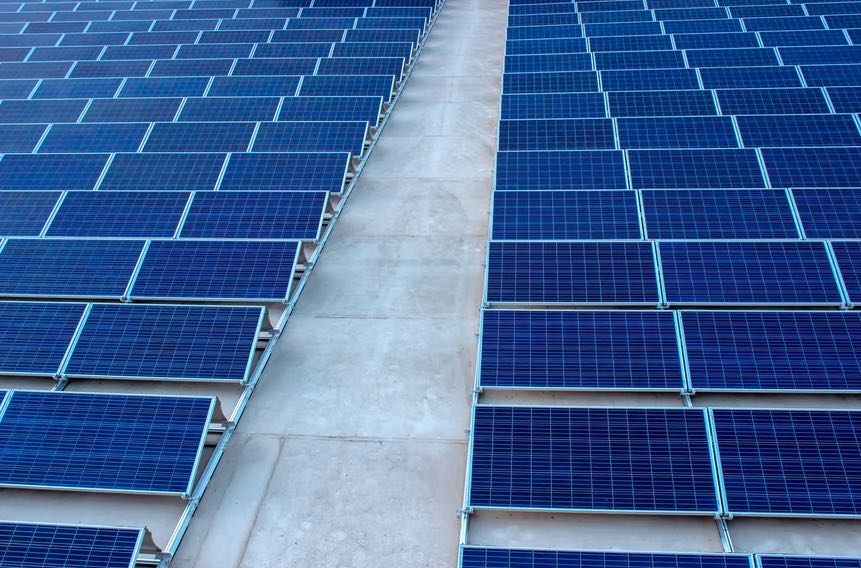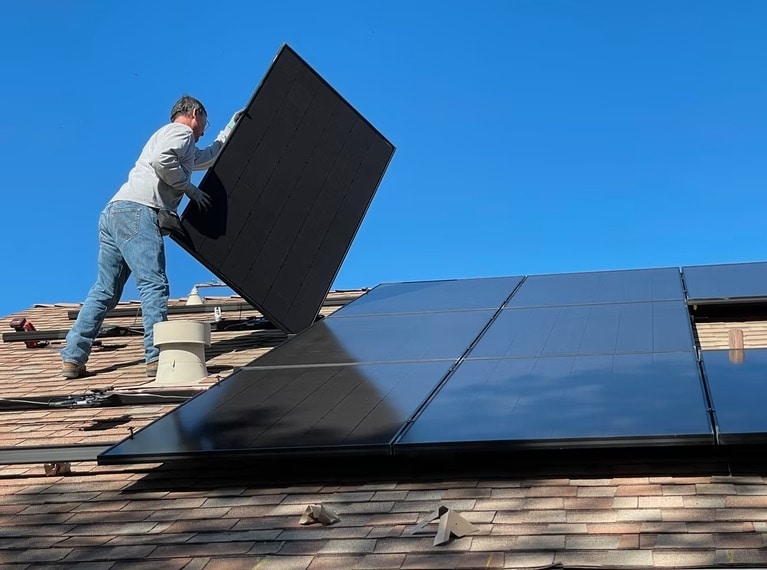Solar panel kits provide an efficient and cost-effective way to power various structures, such as homes, cabins, RVs, or even boats. Compared to noisy fuel generators, solar kits offer a clean, renewable energy source with minimal upkeep.
While the initial investment for solar panels may seem higher, they can eventually pay for themselves by reducing electricity costs and benefiting from solar energy’s sustainability. If you are new to solar technology, a solar panel kit is an ideal starting point.
This guide will help you choose the best solar panel kit for your home or other applications.
Let’s Get Straight To The Point
Solar panel kits are an efficient, cost-effective way to power homes, cabins, RVs, and more using clean, renewable energy with minimal upkeep. These kits typically include solar panels, an inverter, and a charge controller, making them perfect for beginners as DIY installations.
They offer long-term savings despite higher upfront costs. Factors to consider when choosing a kit include efficiency, durability, warranty, price, and temperature performance. Popular kits include Renogy, DOKIO, and SunPower systems.
While solar kits reduce energy bills and carbon footprints, they may not include batteries, and their performance is dependent on consistent sunlight.
What Are Solar Panel Kits?
A solar panel kit includes a solar panel and other components needed to install and operate a solar energy system. These kits are designed for DIY installation, allowing beginners to set up renewable energy systems without needing to hire a professional. This not only reduces costs but also gives homeowners more control over the installation process.
Benefits of Solar Energy
Solar energy is available globally, with the sun providing an almost infinite energy source. According to the National Oceanic and Atmospheric Administration (NOAA), the sun produces 173,000 terawatts of energy daily, which is vastly more than the total energy consumption worldwide. Solar energy has evolved significantly with technological advancements in solar photovoltaic (PV) systems, making it an increasingly viable option for residential use. With lower costs and improved efficiency, solar panels are now competitive with traditional power sources.

How to Choose the Best Solar Panel Kit
When selecting a solar panel kit, several factors should be considered to ensure you get the best value and performance for your home.
1. Efficiency
Solar panel efficiency refers to the amount of sunlight that can be converted into usable electricity. While the maximum efficiency of solar panels hovers around 20%, highly efficient panels can lead to more significant savings on your energy bills. Opting for high-efficiency panels ensures you get the most out of your solar energy investment.
2. Durability
Given the long-term nature of solar panel installations, durability is a critical factor. You’ll want solar panels that can withstand harsh weather conditions and continue operating efficiently for years. Look for panels built with robust materials that resist corrosion and wear over time.
3. Warranty
Most reputable solar panel kits come with a warranty ranging from 10 to 25 years. A strong warranty offers peace of mind and protects your investment by covering potential defects or performance issues.
4. Price
While the upfront cost of solar panels can vary, it’s essential to weigh this against factors like durability and warranty to get a complete picture of the panel’s value. Cheaper panels may cost more in the long run due to potential maintenance or replacement needs.
5. Temperature Coefficient
The temperature coefficient measures how well solar panels perform in high-temperature conditions. As temperatures rise, the efficiency of solar panels may decrease. Choosing panels with a lower temperature coefficient ensures more consistent performance in warm climates.
Top Solar Panel Kits for Homes
Below are some of the top solar panel kits available, offering a range of options for different needs and budgets.
1. Renogy 100W 12V Monocrystalline Solar Starter Kit
Renogy’s 100-watt monocrystalline solar starter kit is a popular choice for beginners due to its ease of installation and portability. This kit is ideal for smaller structures like RVs, boats, cabins, and barns. It includes a charge controller that protects the system from overcharging, a feature essential for ensuring the longevity of the solar panels and connected batteries.
The frame is built from corrosion-resistant aluminum, making it suitable for outdoor environments. Renogy’s solar kit is designed with beginners in mind, offering clear instructions and hardware for easy setup.
2. DOKIO 150W 12V Portable Foldable Solar Panel Kit
The DOKIO 150W portable solar panel kit is perfect for camping trips or other temporary uses. This kit is lightweight, weighing only 4.1 kilograms, and has a convenient carry handle for easy transport. The panel folds down to a compact size, making it easy to store or pack. However, the lightweight design does sacrifice some durability compared to other models.
3. SunPower Equinox System
SunPower’s Equinox System offers an integrated solar solution, where every component—from the panels to the inverters and battery storage—comes from a single manufacturer. This allows for seamless compatibility and easy installation. The system includes high-efficiency Maxeon solar cells, which can reach up to 21% efficiency, providing 55% more energy generation compared to standard panels in the same area.
SunPower offers a 25-year warranty on the entire system, which includes both the panels and microinverters, making this a reliable and long-lasting solution for homeowners looking to make a significant investment in solar energy.
4. 5000W (5kW) DIY Solar Install Kit with SolarEdge Inverter
This DIY solar installation kit includes 17 monocrystalline solar panels, each equipped with power optimizers to enhance efficiency. The optimizers help mitigate the impact of shading on individual panels, allowing the rest of the system to continue operating efficiently even if one panel is partially obstructed.
This kit also includes a SolarEdge inverter, which converts the solar energy into AC power. A battery can be added to the system for energy storage, allowing you to go completely off-grid if desired.
5. TopSolar 20W 12V Solar Panel Kit
TopSolar’s 20W solar panel kit is designed for smaller applications, such as charging 12V batteries. This portable and lightweight kit is ideal for camping or as an emergency power supply for smaller devices. The kit comes with a charge controller that protects both the solar system and connected devices from damage.
6. LG Solar Panels
LG solar panels are highly regarded for their efficiency and durability. These panels are built using advanced technology and come with a 25-year warranty, making them a top choice for homeowners looking for a long-term solution. Though LG panels may have a higher upfront cost, their efficiency and durability make them a worthwhile investment.

How Solar Panel Kits Work
A solar panel kit typically includes solar panels, an inverter, a charge controller, and the necessary cables and connectors. Here’s a simplified overview of how solar power is generated:
- Solar Panels: Solar panels are composed of solar cells, usually made from silicon, that generate electricity when exposed to sunlight through a process called the photovoltaic effect.
- Charge Controller: The charge controller regulates the flow of electricity to the batteries, preventing overcharging or reverse charging, which could damage the system.
- Inverter: The inverter converts the direct current (DC) produced by the solar panels into alternating current (AC), which can then be used to power your home appliances.
- Battery Storage (Optional): Some systems include batteries for storing excess energy, allowing you to use solar power even when the sun is not shining. This is particularly useful for off-grid setups.
Benefits of Solar Panel Kits
- Cost Savings: Solar panel kits offer a way to reduce your electricity bills, especially in areas with abundant sunlight.
- Environmental Impact: Solar energy is a clean and renewable resource, helping to reduce your carbon footprint.
- Energy Independence: By installing a solar panel kit, you can reduce your reliance on the grid, or even go completely off-grid with the right setup.
Drawbacks of Solar Panel Kits
- Initial Cost: While solar panel kits are a long-term investment, the upfront costs can be high, especially for larger systems.
- Weather Dependence: Solar panels require consistent sunlight to operate efficiently. Cloudy or rainy days will reduce energy production.
- Battery Not Included: Many solar panel kits do not include batteries, which must be purchased separately if you want energy storage.
Conclusion
Solar panel kits are an excellent investment for homeowners looking to reduce their energy bills and reliance on the grid. With a wide range of options available—from portable kits for camping to full-home systems like the SunPower Equinox—there’s a solar panel kit for every need and budget.
For those new to solar technology, the Renogy 100W starter kit is a great entry point, while more advanced users may want to consider larger systems like the 5000W DIY kit with SolarEdge inverters. No matter your choice, solar panel kits provide a pathway to clean, renewable energy and long-term savings.
FAQs About Solar Panel
Are Solar Panel Kits Worth It?
Are Solar Energy Kits Worth It? An investment in solar energy is worthwhile because of how much it saves on power. Since you save on a monthly bill, the upfront costs are the biggest hurdle. It’s worth checking with different vendors to find a deal.
How Many Solar Watts Do I Need For My House?
Divide your average hourly wattage requirement by the number of daily peak sunlight hours for your area. This gives you the amount of energy your panels need to produce every hour. So the average U.S. home (900 kWh/month) in an area that gets five peak sunlight hours per day would need 6,000 watts.
What Are The 3 Types Of Solar Panels?
What are the 3 Types of Solar Panels? The three types of solar panels are monocrystalline, polycrystalline, and thin-film solar panels. Each of these types of solar cells is made in a unique way and has a different aesthetic appearance.
How Long Do Solar Panels Last?
Based on that information, solar panel manufacturers typically offer warranties of about 25 years or more. And in the case of newer or well-built systems, panels can last for 30 years.
What Is A Solar Panel Used For?
Solar panels are those devices that absorb the sun’s rays and convert them into electricity or heat. A solar panel is a collection of solar (or photovoltaic) cells, which can be used to generate electricity through the photovoltaic effect.

